You are here
Risky Business: Marijuana Use
With laws in many states allowing the use of marijuana under a variety of circumstances, it is important to understand how it can affect mental health and when its use becomes a serious problem. Please note- this webpage is speaking about marijuana in general and not CBD or other derivatives.
Availability is increasing. Attitudes are changing.
 |
states have legalized marijuana for medical use. [1] |
 |
states and the District of Columbia have legalized marijuana for medical AND recreational use. [2] |
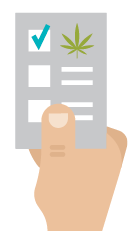 |
57% of American adults support the legalization of marijuana. [3] |
 |
69% of American adults believe alcohol is more harmful to health than marijuana. [4] |
Marijuana is widely used
Lifetime use of marijuana/cannabis [5] |
|
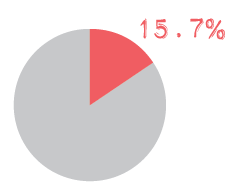 |
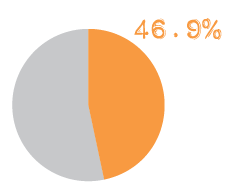 |
Among Youth 12-17 |
Among Adults 19 and older |
Marijuana use is higher among people with mental illnesses
Past year use of marijuana/cannabis [6] |
|
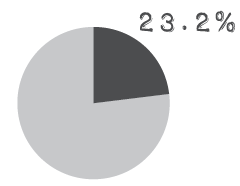 |
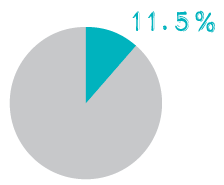 |
Among adults with mental illness |
Among adults without mental illness |
When does marijuana use become a problem?
Marijuana use becomes a problem when it interferes with a person’s ability to function in their personal and/or professional lives.
In the past year have you:
- Used marijuana in large amounts for longer than intended?
- Wanted to stop using marijuana, but weren’t successful in attempts to quit?
- Spent a great deal of time getting, using, or recovering from marijuana?
- Had strong cravings or urges to use?
- Failed to perform work, school, or home duties because of marijuana?
- Continued use despite it causing problems with relationships?
- Stopped participating in activities you used to enjoy because of marijuana use?
- Used marijuana in physically dangerous situations (driving, etc.)?
- Continued using marijuana despite physical or mental health problems that it has caused or made worse?
- Developed a tolerance to marijuana (needed more to get the desired effect)?
- Felt withdrawal symptoms when you stopped using marijuana, possibly using again to relieve your discomfort?
If you have experienced two or more of the following signs in the past year, you may have Marijuana (cannabis) Use Disorder.[7]
Marijuana (cannabis) Use Disorder affects: [8] |
|||
 |
of youth ages 12-17 |  |
of adults ages 18 and older |
Can marijuana cause mental illnesses?
More research is needed for a clear answer to this question. Here's what we do know:
 |
Marijuana may increase the risk of developing psychotic disorders like schizophrenia. It can also worsen symptoms in people who already have psychosis.[9] |
 |
Marijuana use during adolescence can have lasting effects, including changes to the reward system in the brain and trouble with thinking and remembering.[10] |
 |
Marijuana use can cause symptoms of mental health problems like psychosis (hallucinations), anxiety (panic attacks), depression, and sleep disorders, but these symptoms generally fade after the effect of the drug has worn off. [11] |
 |
People may get “too high” by using a strain of marijuana that is stronger than they thought it would be, by using too much, or by consuming it in di˙erent ways. Smoking marijuana usually takes effect quickly (a matter of minutes), while consuming edibles usually takes longer (a matter of hours) for an individual to feel the effects, and they may end up consuming too much because they “don’t feel it” at first. [12] |
 |
Adults who have been diagnosed with marijuana (cannabis) use disorder have high rates of mental health disorders including anxiety, depression, PTSD, and ADHD [13]. It is hard to know whether the marijuana use disorder or the mental health disorder appeared first, since many people use drugs to self-medicate. |
Can marijuana treat mental illnesses?
Much of the research supporting the use of marijuana or cannabis as a treatment for mental illnesses is based on:
 |
OR |  |
|
Anecdotal Evidence |
Experiments using different chemicals from marijuana in rats |
In some states that have legalized medical marijuana, it can be prescribed to reduce symptoms of Post-Traumatic Stress Disorder (PTSD) or stimulate appetite in people with anorexia. Depending on the state, doctors may also be able to prescribe marijuana for other mental health problems (like anxiety) at their discretion if traditional methods of treatment have not been successful.
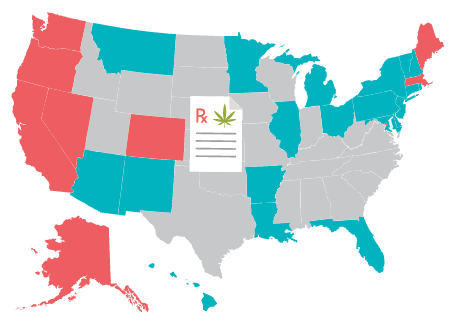
Take control of marijuana use
- Keep track of your marijuana use to see if you notice patterns.
- Be specific with yourself about how you would like to change your marijuana use (how often, when, where, etc.) and your reasons for making changes.
- Take a month-long break from marijuana. This enables your body to get rid of the drug, reduce tolerance, and get over the discomfort of withdrawal that some people feel when stopping.
- Identify what triggers the urge to use, and think about what you can do to manage those triggers.
- Avoid using marijuana before activities that require thinking and remembering, like school and work, or before an important or new challenge.
- Don’t mix marijuana with alcohol or other drugs.
- Get immediate help if you are unable to control your use or if you have a medical emergency.
If you need help
 |
Take the substance use screen at mhascreening.org. Use the results to start a conversation with your health care provider. |
 |
Seek specialized treatment. You can find treatment providers for substance use problems using the online SAMHSA Treatment Locator at findtreatment.samhsa.gov or by calling the SAMHSA 24/7 Treatment Referral Line 1-800-662-HELP(4357). |
If you or a loved one is in a mental health crisis, please either visit your local Emergency Room, call 911, reach out to The National Suicide Prevention Lifeline's 24 hour toll-free crisis hotline, 1.800.273.TALK (1.800.273.8255), or text "MHA" to 741741 to receive text-based crisis help.
Sources
[1,2] http://norml.org/states
[3,4] http://www.pewresearch.org/fact-tank/2015/04/14/6-facts-about-marijuana/
[5,6] SAMHSA. Center for Behavioral Health Statistics and Quality, National Survey on Drug Use and Health, 2014 and 2015.
[7-13] American Psychiatric Association: Diagnostic and Statistical Manual of Mental Disorders, Fifth Edition. Arlington, VA, American Psychiatric Association, 2013.









this page